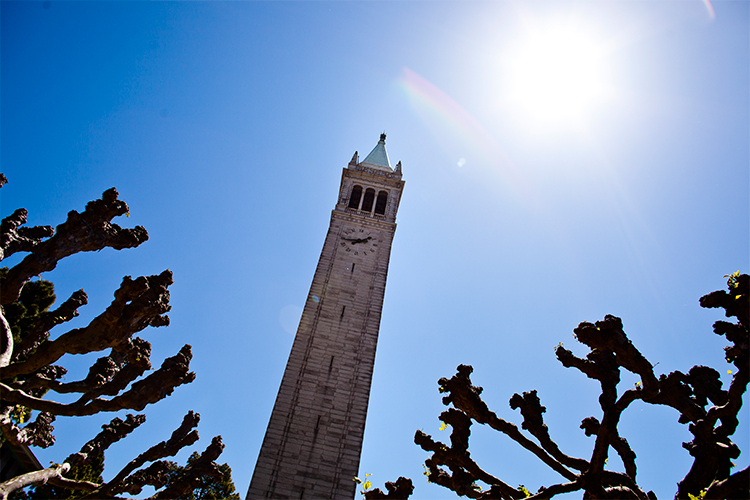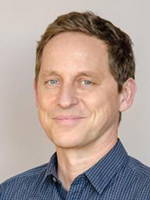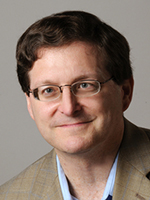Seven at UC Berkeley awarded 2017 Guggenheim Fellowships, most of any university
Altogether, the foundation awarded fellowships to 173 scholars, artists and scientists, and this year Berkeley led the program with the most fellows on any one campus awarded the honor.

April 7, 2017
Seven UC Berkeley faculty are among the 2017 recipients of the John Simon Guggenheim Memorial Foundation fellowships, a diverse and gifted group who were chosen on the basis of prior achievement and exceptional promise.
Altogether, the foundation awarded fellowships to 173 scholars, artists and scientists, and this year Berkeley led the program with the most fellows on any one campus awarded the honor. The awards help recipients pursue a special project for six to 12 months. The award is intended for men and women who have already demonstrated exceptional capacity for productive scholarship or exceptional creative ability in the arts.
 Wendy Brown, professor of political science, teaches courses in modern European political theory and political freedom. Brown is best known for intertwining the insights of philosophers including Marx, Nietzsche and Foucault, among others, to critically interrogate formations of power, political identity, citizenship and political subjectivity in contemporary liberal democracies.
Wendy Brown, professor of political science, teaches courses in modern European political theory and political freedom. Brown is best known for intertwining the insights of philosophers including Marx, Nietzsche and Foucault, among others, to critically interrogate formations of power, political identity, citizenship and political subjectivity in contemporary liberal democracies.
 Cindy Cox, professor of composition in the Department of Music, derives her “post-tonal” musical language from acoustics, innovations in technology, harmonic resonance and poetic allusion. Her compositions synthesize old and new musical designs. Cox’s music is noted for its special tunings, harmonies and textural colorations.
Cindy Cox, professor of composition in the Department of Music, derives her “post-tonal” musical language from acoustics, innovations in technology, harmonic resonance and poetic allusion. Her compositions synthesize old and new musical designs. Cox’s music is noted for its special tunings, harmonies and textural colorations.
 Tom Griffiths is a professor of psychology and cognitive science and director of the Institute of Cognitive and Brain Sciences. His research explores connections between human and machine learning, using ideas from statistics and artificial intelligence to understand how people solve the challenging computational problems they encounter in everyday life.
Tom Griffiths is a professor of psychology and cognitive science and director of the Institute of Cognitive and Brain Sciences. His research explores connections between human and machine learning, using ideas from statistics and artificial intelligence to understand how people solve the challenging computational problems they encounter in everyday life.
 Stefan-Ludwig Hoffmann, professor of history, is a social and intellectual historian of modern Europe. Hoffmann’s research explores the history of political concepts like cosmopolitanism, democracy and human rights as well as the everyday life in cities at moments of historical rupture.
Stefan-Ludwig Hoffmann, professor of history, is a social and intellectual historian of modern Europe. Hoffmann’s research explores the history of political concepts like cosmopolitanism, democracy and human rights as well as the everyday life in cities at moments of historical rupture.
 Ulrike Malmendier is a professor of finance at Haas School of Business and professor of economics in the Department of Economics. Malmendier’s work focuses on behavioral economics, corporate finance, and law and economics. In her research, she has explored how behavioral biases affect financial decision-making.
Ulrike Malmendier is a professor of finance at Haas School of Business and professor of economics in the Department of Economics. Malmendier’s work focuses on behavioral economics, corporate finance, and law and economics. In her research, she has explored how behavioral biases affect financial decision-making.
 Samuel Otter, professor in the English department, teaches courses in American literature before 1900, emphasizing the nineteenth century. His research explores the relationships between literary form and historical context, with particular interests in questions of ideology, representations of race, and the author Herman Melville.
Samuel Otter, professor in the English department, teaches courses in American literature before 1900, emphasizing the nineteenth century. His research explores the relationships between literary form and historical context, with particular interests in questions of ideology, representations of race, and the author Herman Melville.
 Richmond Sarpong is a professor of chemistry. His research focuses on the total synthesis of biologically active and architecturally complex natural products as a platform for the development of new synthetic methods and strategies. Central to his research interests is the total synthesis of natural products with a keen eye toward the development of new synthetic methods and strategies.
Richmond Sarpong is a professor of chemistry. His research focuses on the total synthesis of biologically active and architecturally complex natural products as a platform for the development of new synthetic methods and strategies. Central to his research interests is the total synthesis of natural products with a keen eye toward the development of new synthetic methods and strategies.
Since its establishment in 1925, the foundation has granted more than $350 million in fellowships to over 18,000 individuals, among whom are scores of Nobel laureates, Fields Medalists, Turing Award winners, poets laureate, members of the various national academies, winners of the Pulitzer Prize, and other important, internationally recognized honors.